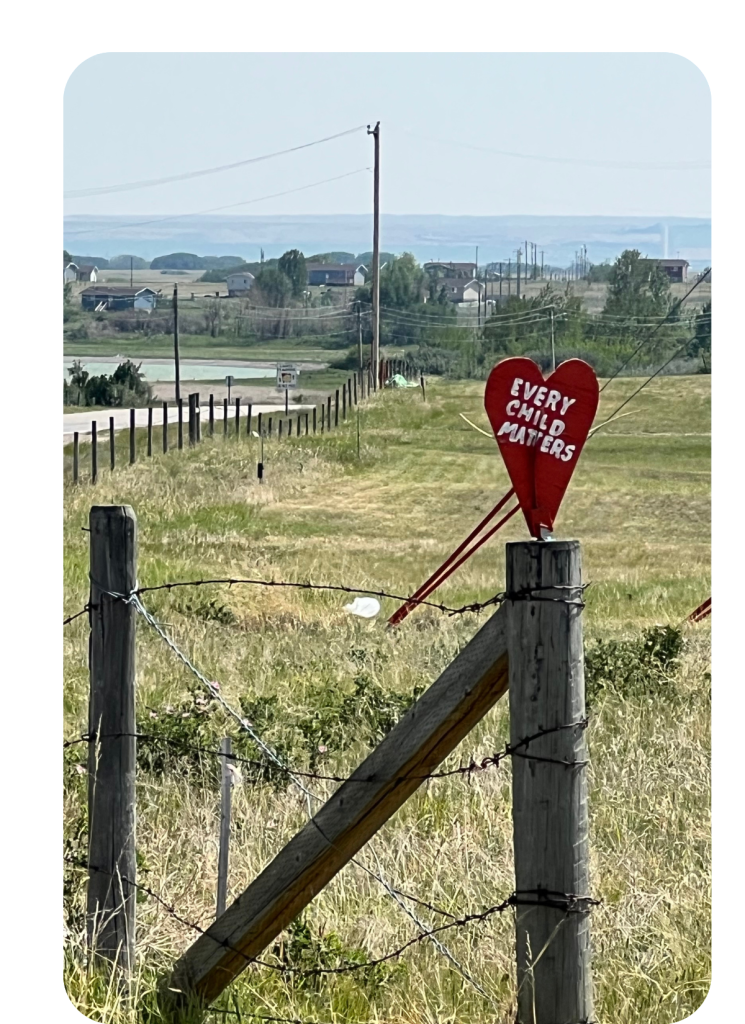Indigenous patient safety:
A call to action
In 2020, several Indigenous physicians reached out to CPSA to share their concerns—and concerns of the Indigenous patients they serve—about the inequities and racism Indigenous people endure in healthcare settings. We were called to act as Alberta’s medical regulator to improve patient safety. Essential to this safety is addressing healthcare inequities—specifically when it comes to racism and discrimination in the medical profession and in the greater healthcare system.
While this was not the first time CPSA was approached in our long history, it was when we fully heard the voices, experiences and lived realities of Indigenous Peoples who had been calling on us to act within our role as a regulatory body to effect much-needed change.
"Indigenous individuals have an equal right to the enjoyment of the highest attainable standard of physical and mental health. "
- United Nations Declaration on the Rights of Indigenous Peoples (UNDRIP), Article 24, para 2

Indigenous patient safety and CPSA’s role
Under the Health Professions Act, CPSA’s legislated role is to protect and serve the public interest, and our mission is to protect all Albertans.
Patient safety is at the heart of our work. Our focus on safe health care is central to everything we do at CPSA, including:
- setting standards of practice for doctors (our regulated members)
- licensing qualified regulated members
- monitoring physician competence
- investigating complaints
A critical and evolving aspect of our work supporting patient safety is the unique and often challenging healthcare experiences of Indigenous Peoples. Recognizing the deep-seated impacts of systemic racism and the need for culturally safe care, we are actively working to embed Indigenous health and reconciliation principles into our core functions. CPSA protects and serves all people in Alberta, and our work towards anti-racism and cultural safety will mean “patient safety for all” includes and respects the unique histories, cultures and healthcare needs of Indigenous Peoples in Alberta.
Barriers to Indigenous patient safety
More and more, we’re understanding how conventional approaches to patient safety are incomplete without addressing the specific and systemic barriers faced by Indigenous Peoples within the healthcare system.
The experiences of First Nations, Métis, and Inuit individuals are often marked by:
- systemic racism and discrimination: Indigenous people frequently report experiences of bias, stereotyping, and culturally unsafe care, which can lead to misdiagnosis, delayed treatment, and a general distrust of the healthcare system.
- cultural and linguistic barriers: a lack of understanding of Indigenous cultures, traditions, and languages on the part of healthcare providers can create significant communication gaps and prevent the delivery of holistic and patient-centered care.
- health inequities: the structural determinants of health, deeply impacted by colonialism and its ongoing legacy, contribute to a disproportionate burden of chronic and acute health conditions among Indigenous populations.
Indigenous Advisory Circle
Through ongoing connections with the physicians who called us to action in 2020 and guided by the Calls to Action of the Truth and Reconciliation Commission of Canada, we have recognized that patient safety for Indigenous people requires a nuanced and proactive approach. We also recognized that we needed long-term guidance on how to support improved healthcare experiences and outcomes for Indigenous people.
CPSA Council established the Indigenous Advisory Circle in 2021 to help provide this guidance. The Circle walks with us on our reconciliation journey by helping us identify better ways to support First Nations, Métis and Inuit patients and guide the doctors who provide their health care. The Circle also helps us reflect on our regulatory processes and advises us on ways to improve cultural safety in the work we do.
Listening and learning
In addition to the guidance we receive from the Circle, CPSA has been listening to and learning from First Nations, Inuit and Métis people about their experiences within the health system. We have also begun looking into how CPSA has directly or indirectly contributed to healthcare harms Indigenous people continue to face.
What we have learned so far is significant and requires our action.
As the sole regulatory body for physicians in Alberta for over 124 years, CPSA has been responsible for overseeing the practice of medicine during a time when Indigenous people were—and still are—subjected to harms within the healthcare system. In some instances, CPSA may have been unaware or indifferent to these harms. In others, CPSA was complicit.
We are also learning about how systemic inequities continue to harm distinctions-based Indigenous populations and contribute to significant health disparities, including, among other outcomes, a 19.1-year gap in life expectancy affecting First Nations people compared to other people in Alberta.
While CPSA’s learning needs to continue, what we better understand today has shaped the actions we are undertaking beginning in 2025.
CPSA’s Path to Truth and Reconciliation
It’s with the guidance of and in collaboration with the Circle that we have developed CPSA’s Path to Truth and Reconciliation (the Path), which received support and acceptance from CPSA Council in March 2024. The Path is an action plan to address Indigenous-specific racism and promote culturally safe health care.
Have questions?
Phone: 780-423-4764
Toll-free: 1-800-561-3899 (in Canada)























